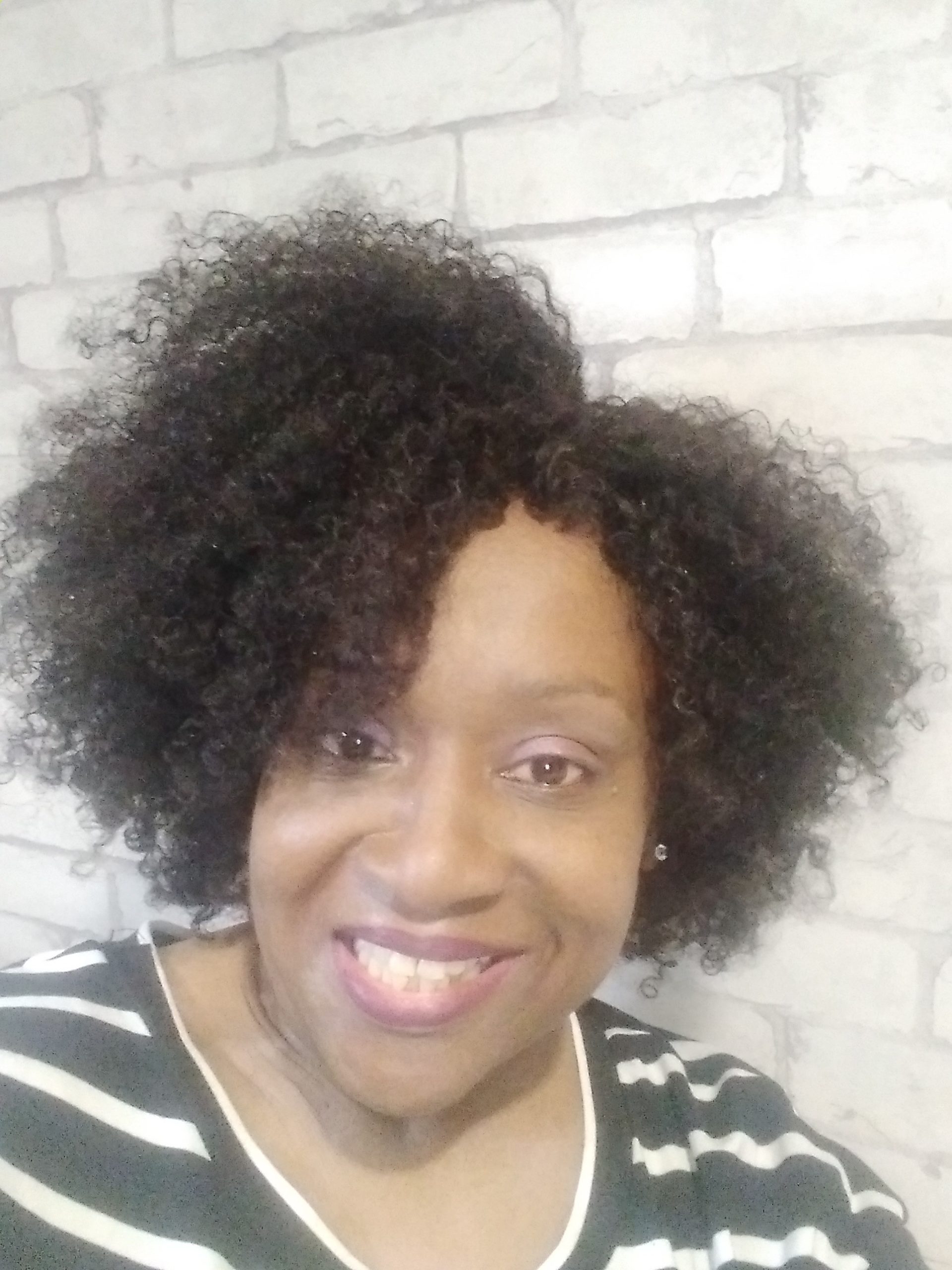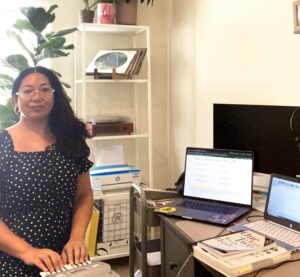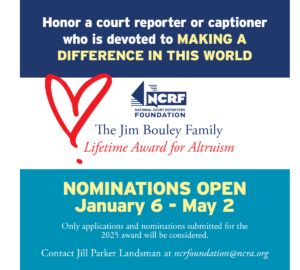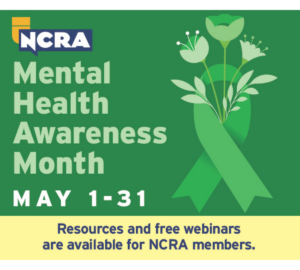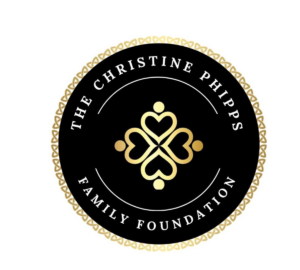These days, there is no “typical” court reporting student. It may be someone fresh out of high school, a stay-at-home parent, or in the case of this issue’s Student Spotlight, someone who has already had a full career in a different field. Emily Patterson started court reporting school in her late 50s and admits that it was an uphill climb. But she’s learned to take care of herself by asking for help. “My goal,” she says, “is to seek out others who have already been where I’m going, so that I can continue to grow and glean from their wisdom.”
JCR | Can you share a bit about your background? Did you have another career before you started at the College of Court Reporting (CCR) in Valparaiso, Ind.?
EP | I hadn’t ever arrived at a career choice that I can say I was truly passionate about. I’ve always wanted to be able to say, “I love my job.” I can say however, that, like anybody else I’ve wanted to make a good income. We were taught as kids that money gives you more choices in life, and more opportunities to bless others. I’ve always wanted flexibility, a certain measure of autonomy, and I’ve eventually hoped to work for myself.
In another life I was a U. S. Postal Service mail processor for almost 20 years. Before that I was a word processor in the era before personal computers.
At the postal service I remember often sitting in our swing room having my lunch as I watched the closed captioning on our television screens. It was always on because, as a government place of business, I worked in a diverse environment, which included several hearing-impaired coworkers. They had begun to teach me sign language because I told them I was tired of writing notes. One day, as I read the television captions at lunch, I blurted out, “I can do that!” I didn’t even know what “that” was back then, or that I was prophesying my own future. This was in the 1990s, and I was in my 30s.
So here I am in my late 50s, finally fired up about a career that I can truly say I was designed for. Before this, I had never seen a steno machine, and I had never met a court reporter. I did spend a few weeks in an NCRA A to Z ®Intro to Steno Machine class before my first semester. I felt like I was learning piano again and having to learn a new language to play it with. It was scary, but I was also intrigued by this new challenge at this stage in my life. I still am.
JCR | What kinds of challenges have you faced during your court reporting program, particularly during COVID-19?
EP | My first semester was in January 2020, and we were in the clutches of the health scare and all of its uncertainties by March. This pandemic has been one big global mental health crisis. I have experienced my own challenges. Learning court reporting is hard! I see why this is a road less traveled. Doing it after not having been in college for decades and during a worldwide health scare has been … unbelievable. It’s been isolating. At least it was in the beginning. I had no relationships with anyone I could talk to about this field. I needed support and court reporting connections. It was lonely. This experience has exposed me emotionally and in so many other ways. I was relieved to read about NCRA’s initiative from NCRA Past President, Christine Phipps, [RPR,] to begin to address mental health for the court reporting community. I eventually remembered to reach into my toolbox of skills from my own lived experience and my work in behavioral health and peer support. I also had to come out of my homebody ways. I had to take the risk, to be vulnerable, and to ask for help. I’ve had to be mindful again about my self-talk — what I say to myself about myself — and come up with and speak new affirmations and confessions to myself about being a court reporting student.
Connection and honest communication are making the difference. I am building up my support team. I have met some wonderful and safe people. I am asking for mentors. This experience is requiring me to make major transformations in my physical health, my mental health, my financial health, and my spiritual health. I’m having to do a lot of personal growth!
However, I cannot do this in isolation. I need the court reporting community. I’m not just getting a new job. This is a change to my quality of life, the one that I’ve been praying for. I have always prayed to have a skill that I could use practically anywhere I chose to live, one that would be rewarding and always be in demand.
But I’ve had to realize that I can’t take the old Emily into this new life. I’m being groomed for a major new league. It’s requiring me to train — and sometimes strain — to acquire a discipline that, I must confess, I have never had. I’ve cried, I’ve cussed, and I’ve almost quit — twice. This court reporting gig is no joke. However, as I listen to my instructors, and I get to know working reporters, they have shared with me what the rewards will be like, if I just don’t quit. My speedbuilding instructor at CCR, Melissa Lee, [CRI,] keeps saying: “Trust the process.” I’m going to do just that. I am holding on to this blessing and I won’t let go!
I want to share something I learned about the personal growth process when I worked in behavioral health:
There’s No Comfort in the Growth Zone.
There’s No Growth in the Comfort Zone.
JCR | You are a member of the Facebook group Stenographers Leveling Up with Certifications. Why did you join the group and what kind of support are you getting out of it?
EP | My goal is to seek out others who have already been where I’m going so that I can continue to grow and glean from their wisdom. I have been coming out of isolation and learning the value of community. I reached out to Ebony Hazeleger, a Superior Court official here in Georgia. She’s been so gracious. She invited me right away to shadow her in court as soon as I could get there. She is the one who extended the invitation to the Facebook group. I have also met a new supporter/mentor here, the wonderful Margary Rogers [RPR, CRI] (aka Wisdom Hope) who, by the way has just become the President of the Maryland Court Reporters Association. I hope to continue to build relationships by being here. I am open to correction. I need to learn all I can. I want exposure to all the opportunities this career has to offer. I am open to traveling. Realtime really appeals to me. After all, it was the first to get my attention in this fascinating field.
JCR | Is there anything else you’d like to share about yourself?
EP | I had a teacher my junior year in high school, which I spent in Yorktown Heights, N.Y. Her name was Judith Licht. That elegant lady made Macbeth come alive for me! She taught me so much about writing. She also said something about me in front of the English class that I will forever respect and love her for! I wish I hadn’t been so shy then and that I could’ve told her.
I am grateful for my mentor here in Georgia, our Georgia State Court Reporters President, LeQuetta Walker. It took me two years to ask her to be my mentor. I was being shy again. I wanted to ask her when I first met her in 2019 at the last in-person social the association had here for students in Georgia right before the pandemic. She endeared herself to me when she walked up to me, looked me dead in my face and said, “Don’t give up!!! We NEED you. Don’t you DARE give up!” At first, I was startled, but then we both cracked up with laughter. I reminded her of that recently. It’s her words I now hear sometimes when I’m having a rough day. I am now committed to the journey. I’m in it to win it! I’m aiming for RPR … and beyond!
Emily Patterson is a student at the College of Court Reporting in Valparaiso, Ind.
